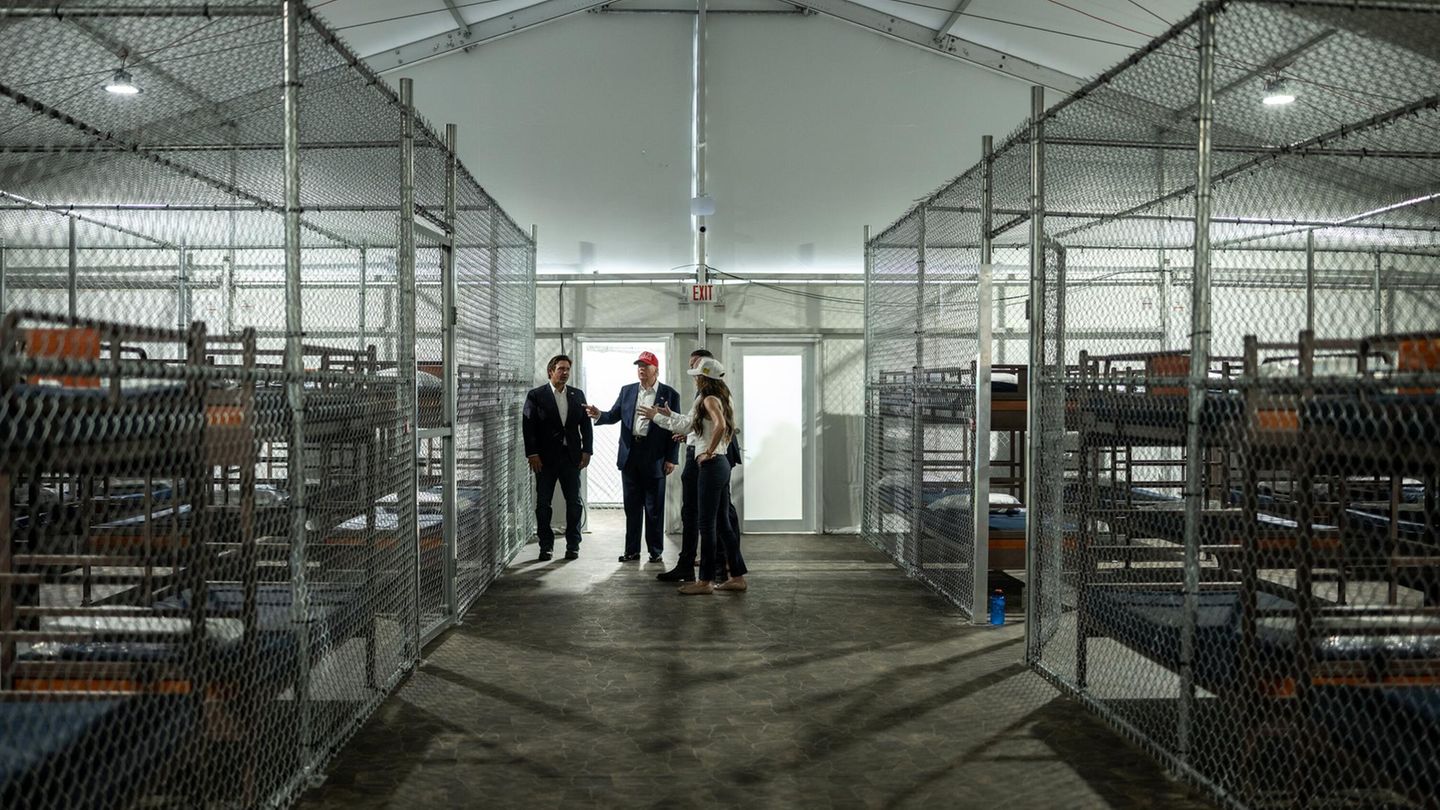Q.: Does this relocation find it viable, or does something utopian sound?
FL: It is very difficult to know where it leads. In the background, what Trump says is “I do not agree with the concept of equity or non -differentiation of the WTO and the GATT.
So, what destroyed here are the principles that governed from the end of the postwar period, the same that established the United States and the United Kingdom to create the GATT. From now on, the most favored nation principle, which means that there is no discrimination between countries, if I give a concession to one I have to give it to others, it is collapsing it. International trade grew with this scheme. The forecasts are not good.
Q.: What risks is Argentina in this context?
FL: One of the issues to think can be what will happen to prices in the United States. Is this inflationary? Is it recessive?
In either case, it is bad for us. First, because it is a rise in rates and a fall in commodities prices. This also printeds a lot of uncertainty to the American system. That is, let’s say, here he has thrown free trade agreements, right? There is, for example, the case of Central America, Israel or Jordan.
Q.: How could the Latin American region affect the possible relocation of that offer that would be, for example, of Asia?
FL: I think it is a subject without a doubt worrying. It is not just the China offer that is restricted, right?, Also Canada, the European Union. This generates occupant volatility.
Obviously, this will generate pressure in markets that were not those that were regularly occupied by suppliers.
Q.: China responded with the same concept of reciprocity and will also apply 34%tariffs. Was that answer expected or was it speculated to propose a negotiation?
FL: Trump likes to negotiate from a position of strength, but we must understand that China depends less and less on exports. China is less sensitive to the closure of markets. In the background he says: “I am willing to match.”
Q.: In the wax document relevant to this issue it is highlighted that oil, gold and lithium carbonates were excluded from the “reciprocal” tariffs. What is the strategic reason for this?
They are strategic provisions of the United States, obviously it should not be imposed an additional cost. The same with the T-MEC (treated between Mexico, the United States and Canada), which remains the same, means that there are also certain structural issues that you prefer to maintain, right?
Q.: Can an estimate be made regarding how much Argentina could lose in terms of exports to the United States with this measure?
FL: You can only make very rude estimates in some aspects. You have 500 million dollars, which is 8%, more or less, of what was imported in 2024 in aluminum. Over there in the wine sector you can win, but then you have some challenges. In peanuts you have direct competition with Mexico and Canada that are suppliers.
It is difficult to make the account, because you also have to think if the American consumer will continue to consume the same, that is, when the price of wine 15%raises, will you buy Californian wine or do you buy imported wine? We don’t know. So, we do not know if there will be a market shrink product of the recession.
What is true is that you have complexes that are threatened, specifically aluminum and steel. But then there are threats in the forest, pharmaceutical and semiconductor sector, although we are not in that game.
Q.: It was known that tariff modification was made from a mathematical formula based on commercial deficit with each country. However, Argentina, except for last year, as a result of the recession, historically had a deficit relationship with the United States. Couldn’t I have played the policy to apply a minor tariff?
Look, I think we are Argentines and we care about our economy, but we are very small in international trade. So, the decision is not focused on us. It must be understood that the mathematical formula is what Trump tried to manifest, but the truth is that it did not seem so clear. It would be difficult to know how those numbers were built. Because?
Because at first there was talk of compensating the fact that a country has a tariff and the US has another, but then it says that other issues must be considered, if there are unfair taxes that are charged in importation, if there are non -tariff barriers, if there are difficulties in the investment of the Americans in that country, among other things. All these issues to go to the tariff number is very difficult.
Trump what you want to solve is your commercial deficit. So what will prioritize? Those countries with which they have the highest commercial deficit. With Argentina it has no commercial deficit. So, we are not a problem.
In fact, we can say that, in reality, it was much better than other Latin American and Central American countries that have a free trade agreement and put 10%.
Q.: What expectations maintain on the possibility of a commercial agreement with the United States?
FL: You have to see in what terms it is done. At some point there was talk of a free trade agreement. This has to be with Mercosur agreement, because breaking Mercosur does not suit us, we have a stable, integrated market in Brazil, we are calm with that. If we didn’t have it, we would be more nervous.
The government evolved to that reasoning. We have heard issues related to lowering some tariffs. First we don’t know what, but one could say that from the tariff point of view they have not asked us for anything. The mourning elements are in the USTR report (Office of the United States Commercial Representative), which Trump himself showed. And from there some things can solve and others that do not.
For example, import payment time is a problem of stocks. There are also intellectual property issues, piracy, the informal economy. But they have not asked for tariffs, in any case, we must first think that if we ceded tariffs it would be violation of Mercosur, of the most favored nation principle (we should lower them all). In this context, should we open the door in a chaos scenario when they did not ask you? We have little information yet, as time progresses we will be able to understand.
It is true that the developed country can give a preference to Argentina. It can go down from ten to zero from some goods or in all. So, if that can be done, well, we can also work on the USTR report list.
Q.: How could the diversification of the export basket be increased?
The issue of competitiveness is what we have to face. That is, in a non -conflictive field we had to face it, because we represent 0.28% of world trade. So, in this in this area with much more turbulence, much more complexity and much more aggressiveness with more reason we should meet this problem.
We cannot continue with export rights over industrial goods, with gross income, with VAT that is not returned, without facing logistics issue, with excessive port costs, all issues that sound very micro, but the truth is that they add to the lack of participation in the international market, right?
Q.: Should we devalue to generate greater competitiveness?
FL: The issue of devaluation is cyclical in Argentina. We are somehow always discuss the exchange rate. I always say for the absurd, to see the story, we evaluate infinite times but the export does not stop falling.
It is true that when you have a exchange rate delay, competitiveness is deteriorating, but it seems to me that the competitiveness problem has to be seen on the other hand, because the problem is in a very complicated tax structure. You add gross income, since you determined how much we had reimbursements, add debit and credits, provincial taxes, municipal.
With that tax burden, well, it is difficult to be competitive. So, devaluing to define the problem does not mean that it will necessarily solve the problem.
Source: Ambito




